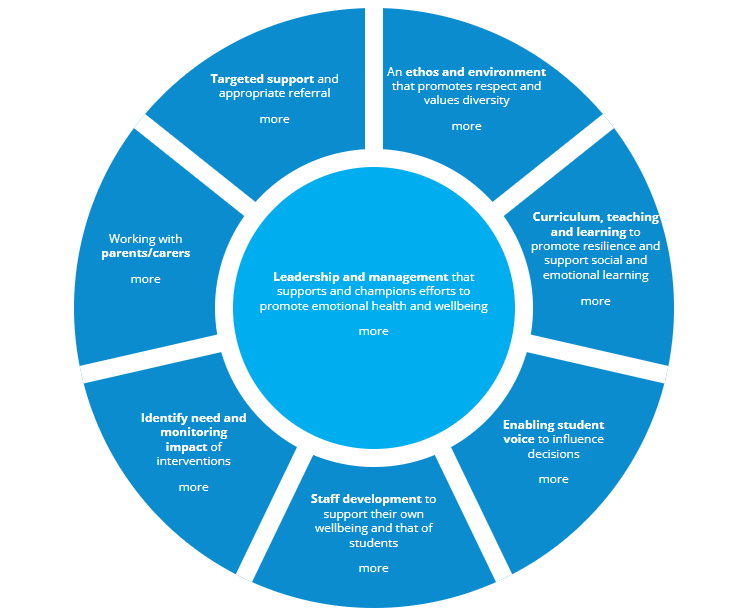
Universal and whole-school approaches to mental health and wellbeing
Information for professionals on the Whole School Approach (WSA) to mental health and wellbeing of pupils.
The Whole School Approach (WSA)
A universal or whole school approach to emotional wellbeing is an effective, evidenced based way of boosting wellbeing across the whole school community as well as contributing to belonging, inclusion and attendance and attainment.
Research shows that when schools adopt a multi-component approach they are more effective in promoting social, emotional health and mental wellbeing. A whole school approach involves pupils, staff, parents and the community as well as outside agencies in addressing emotional wellbeing and mental health issues.
A WSA recognises that all aspects of the school community can impact upon students’ learning and mental health and that they are inextricably linked.
A WSA is an integrated school systems approach - beyond programmes
An Approach... Not a specific programme or a linear pathway but something that individual schools can work with to meet specific needs and starting points.
There are a number of 'models' but the most effective are underpinned by the Eight Principles set out in the Public Health England: "Promoting children and young people’s emotional health and wellbeing: a whole school and college approach".
Useful links
Whole school suicide prevention guidance and policies developed by Papyrus.
Training available
Training and support to develop a Whole School Approach in your setting is available from:
- CAMHS WEST teams if they are in your setting. This team can provide specific training and support for your setting.
- Educational Psychology Service your school can commission bespoke training and development work specific to your setting that can cover all 8 principles of the PHE model of whole school approaches to mental health.



 Facebook
Facebook X
X Email
Email WhatsApp
WhatsApp Messenger
Messenger